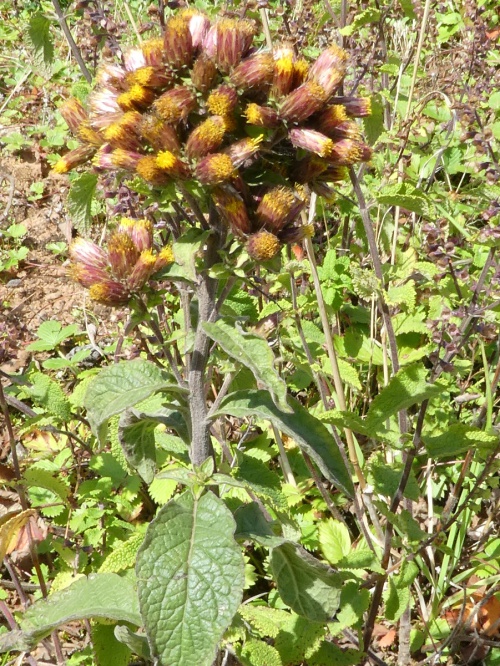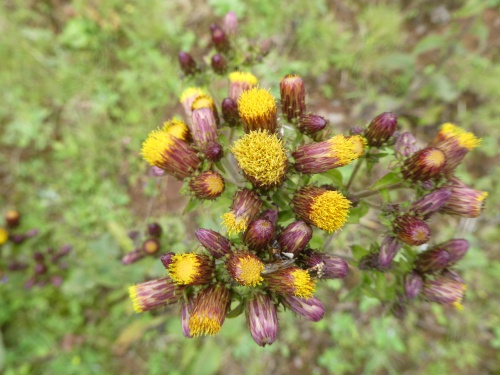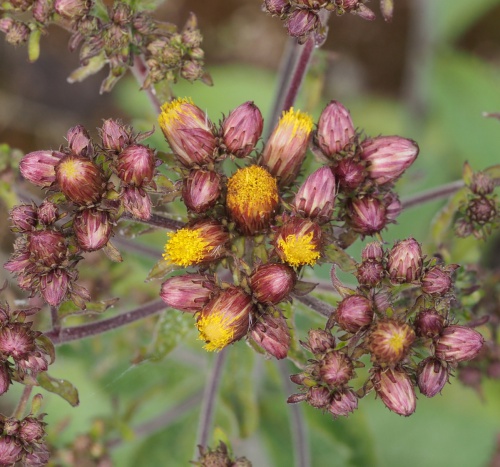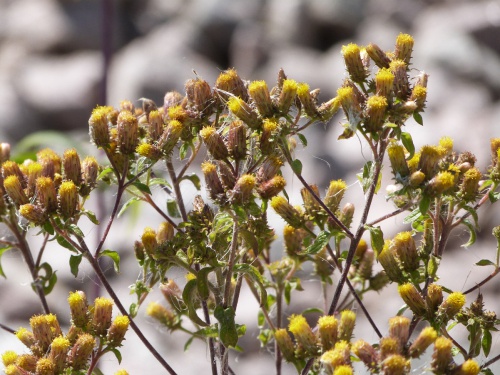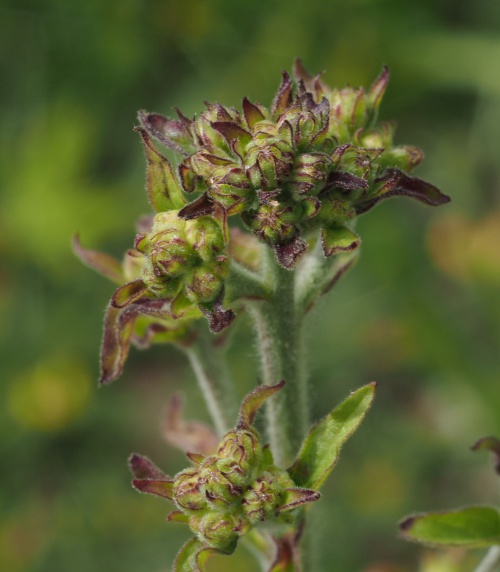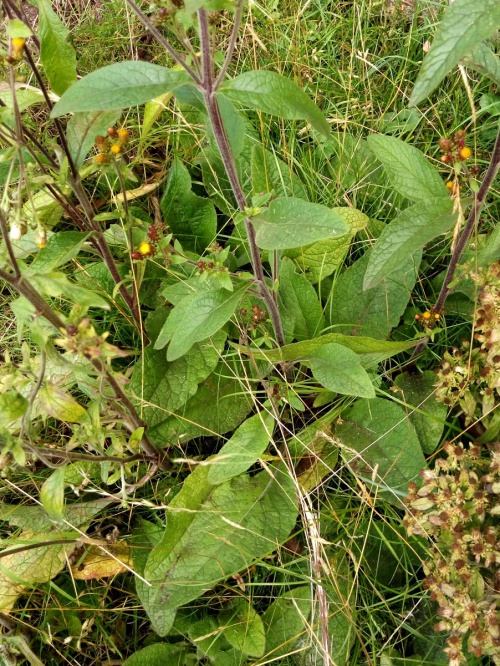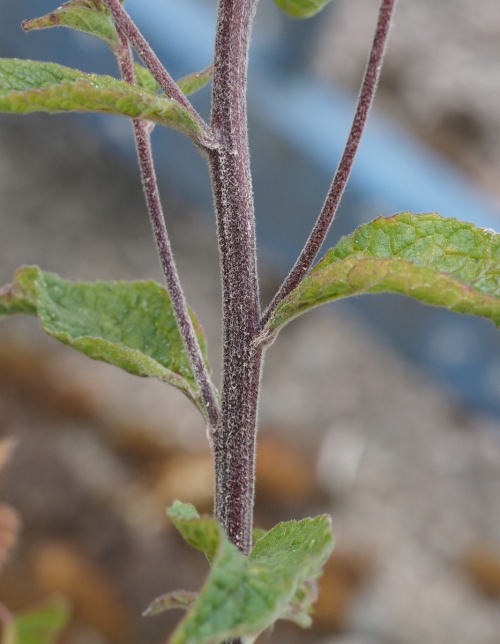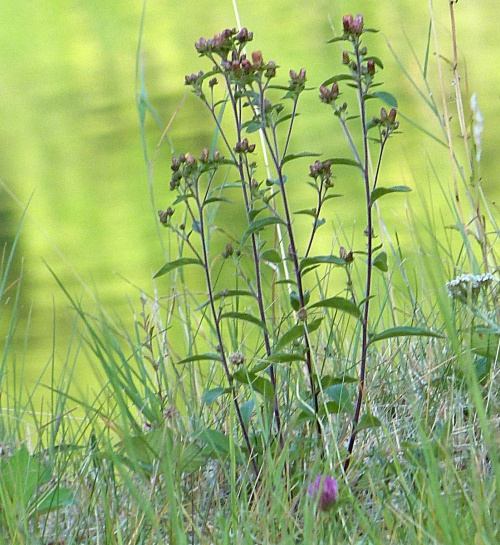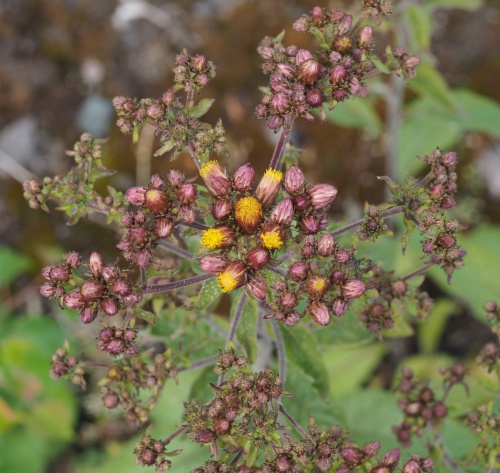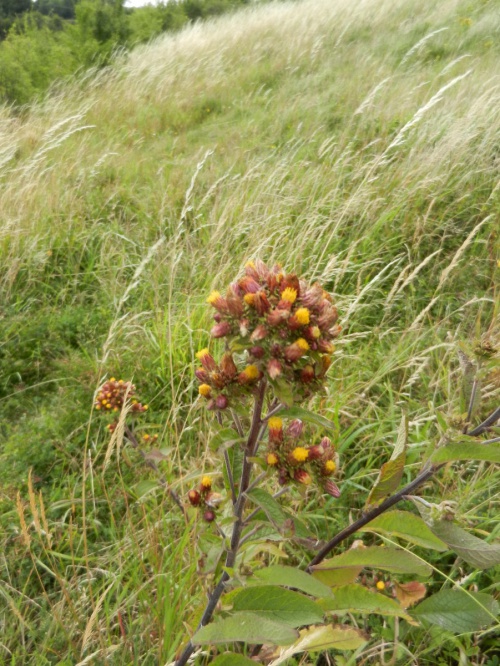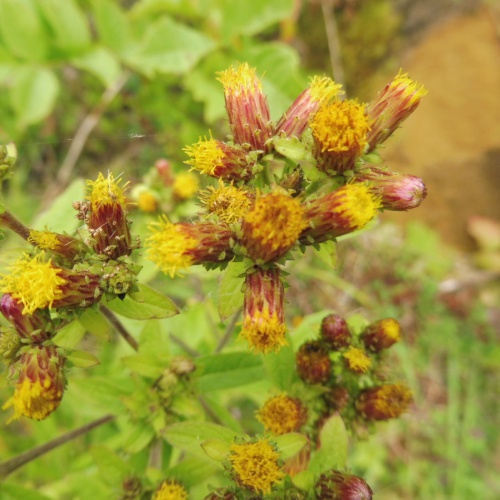Ploughman's-spikenard - Inula conyzae
A hairy, medium to tall plant, stems erect, purplish to 1.2 metres. Leaves elliptical to lanceolate, finely toothed, the lower ones stalked, the upper unstalked, slightly clasping the stem and all densely softly hairy beneath. Flowerheads small, 9 to 11 mm, dull yellow, the outer florets without or with a very short and inconspicuous ray. Many flowerheads in a flat topped cluster. Inner flower bracts purplish.
Stems hairy, tall; leaves narrow; numerous yellow flowerheads, without ray florets, or with only very short ones.
A photograph of the whole plant, showing stem and leaves as well as flowers
Dry, generally rocky habitats, rocky slopes and cliffs and grassy places, especially on calcareous soils
Flowering July to September.
Perennial.
Widespread in England and Wales north to the River Tees, though not particularly common in much of that area.
Occasional and local in Leicestershire and Rutland. In the 1979 Flora survey of Leicestershire it was found in 16 of the 617 tetrads.
In the current checklist (Jeeves 2011) is is listed as Native; disturbed ground; occasional
Leicestershire & Rutland Map
Enter a town or village to see local records
MAP KEY:
Yellow squares = NBN records (all known data)
Coloured circles = NatureSpot records: 2025+ | 2020-2024 | pre-2020
UK Map
Species profile
- Common names
- Ploughman's-spikenard
- Species group:
- Wildflowers
- Kingdom:
- Plantae
- Order:
- Asterales
- Family:
- Asteraceae
- Records on NatureSpot:
- 24
- First record:
- 03/08/2015 (Cunningham, Sally)
- Last record:
- 17/08/2023 (Bell, Melinda)
Total records by month
% of records within its species group
10km squares with records
The latest images and records displayed below include those awaiting verification checks so we cannot guarantee that every identification is correct. Once accepted, the record displays a green tick.
In the Latest Records section, click on the header to sort A-Z, and again to sort Z-A. Use the header boxes to filter the list.


